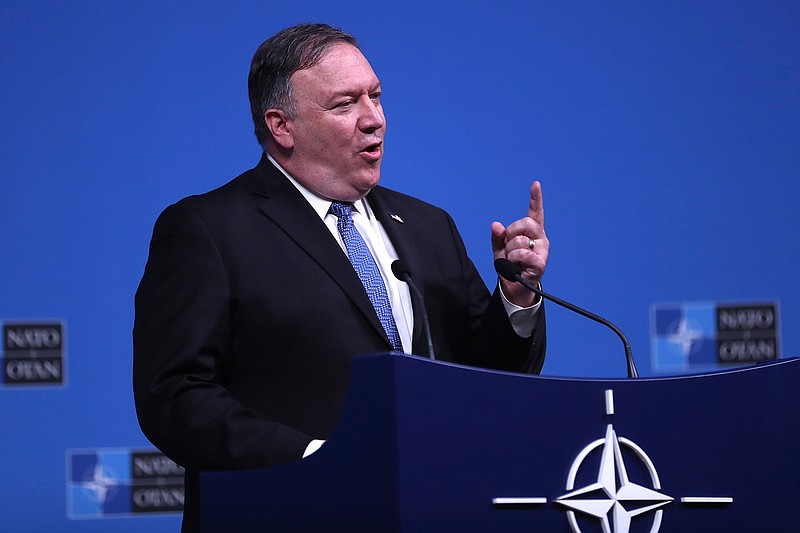MOSCOW-Russian officials on Wednesday warned of unspecified "retaliation" to the U.S. decision to walk out of a key arms treaty.
U.S. Secretary of State Mike Pompeo announced at a NATO meeting Tuesday that Washington will suspend its obligations under the 1987 Intermediate-Range Nuclear Forces Treaty (INF) in 60 days, citing Russian "cheating."
The U.S. has shared intelligence evidence with its NATO allies that it says shows that Russia's new SSC-8 ground-fired cruise missile could give Moscow the ability to launch a nuclear strike in Europe with little or no notice.
The bilateral treaty between Washington and Moscow banned all land-based cruise and ballistic missiles with a range between 310 to 3,410 miles. Russia says the range of the new system does not exceed 310 miles.
Pompeo said Washington "would welcome a Russian change of heart" but that he has seen no indication that Moscow is likely to comply.
Gen. Valery Gerasimov, chief of staff of the Russian military, told a briefing of foreign military attaches on Wednesday that if the U.S. "were to destroy" the treaty "we will not leave it without a response."
He did not give specifics, but he told the attaches that it would be the countries that host U.S. intermediate-range missiles that would become immediate targets for Russia.
Russia has already received official notification from the United States that it intends to walk out of the INF, Foreign Ministry spokeswoman Maria Zakharova told reporters on Wednesday.
Zakharova insisted that Russia has always respected the treaty and considers it "one of the key pillars of strategic stability and international security."

